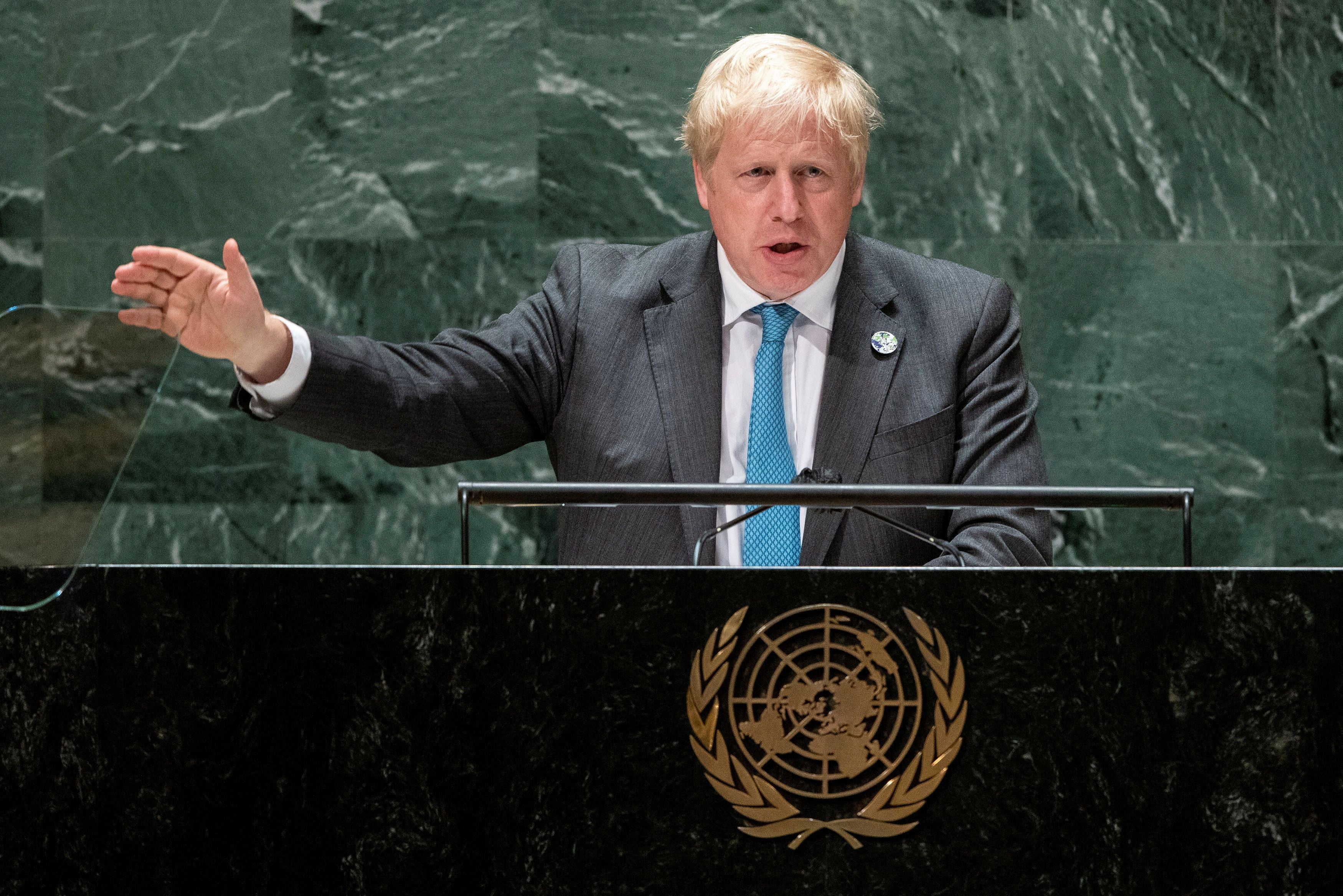Mea Culpa: workers of the word, unite
Questions of style and language in last week’s Independent, reviewed by John Rentoul


On rare occasions, a mistake can make a sentence better. We said in an editorial about Boris Johnson’s trip to the US: “In trouble at home, he has the chance to shine on the word stage.” When John Harrison wrote to me about it, I thought at first that he was suggesting the phrase “trouble at home” held an impertinent double meaning.
My brain saw what it expected to see, and failed to see the missing “l” in “world”. We corrected it, but our prime minister is very much the kind of politician who tries to get out of trouble by shining on the “word stage”. He sought to distract attention from unhelpful domestic news stories by chiding Emmanuel Macron in Franglais and invoking Kermit the Frog in his lecture to the UN about the virtues of being green. If that is the kind of silliness you like, and there are a lot of people in Britain who like their prime minister, you will have thought that he shone on the word stage.
Champagne or ice cream? In our report of the eruption of the volcano on La Palma, one of the Canary Islands, we said “about 1,000 residents formed a convoy out of the village before the red-hot magnum snaked towards their homes”. We meant magma, which is molten rock, but the usual term is lava, once the magma erupts onto the surface.
The same report also referred to “historic volcanic events” that have been “followed by heavy lava flows and lasting seismic activity”. It is an arbitrary convention, but “historic” is usually used to mean “memorable”, as in significant in history, while “historical” is used to mean “in the past”, which is what we meant here.
Not that important: We did it again in the “Home news in brief”, when we reported that a former police and crime commissioner had been charged with making a false declaration in his nomination papers. “Conservative candidate Jonathon Seed was elected in May but withdrew after a historic driving conviction came to light.” Thanks to Keith Bennett for pointing out that one.
On and on and on: My campaign against “ongoing” is, well, continuing to go badly. Most of the time the word can simply be deleted; if that is not possible, a sentence can always be improved by using different words. Last week we wrote about “an ongoing labour shortage”. That is a labour shortage. We said police were trawling through CCTV, “work which remains ongoing”. That is work which is continuing. And we reported that “travel restrictions imposed by coronavirus are ongoing” when we could have said that they are still in force.
Whatever will be, will be: Every journalist knows that there is an absolute ban on using the phrase “only time will tell”, but sometimes we find other ways of saying the same thing. Conor Downey reminded me of a sequence in the Doonesbury cartoon strip, probably in the early 1990s, in which US news presenters are trained on how to end every single story with the words “remains to be seen”.
This is a phrase that was used six times in The Independent last week, often on our sports pages. Only time will tell if we can avoid it in future.
Join our commenting forum
Join thought-provoking conversations, follow other Independent readers and see their replies
Comments
Bookmark popover
Removed from bookmarks